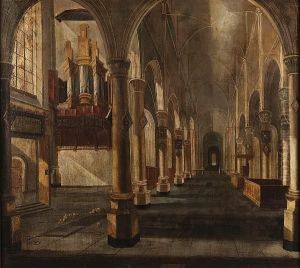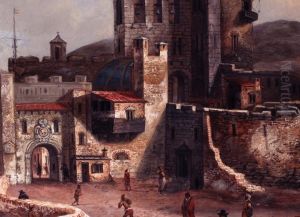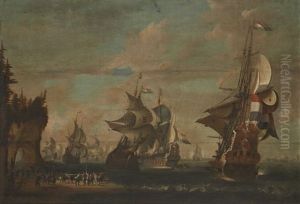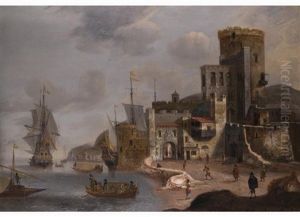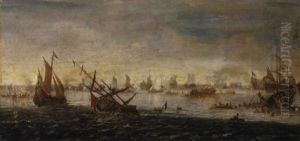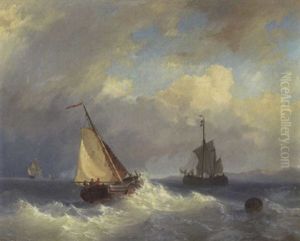Jacob De Gruyter Paintings
Jacob De Gruyter was a Belgian artist born in 1868 in the city of Breda, The Netherlands, but his artistic career and life were primarily anchored in Belgium, making him a notable figure in the Belgian art scene of the early 20th century. His contributions spanned across painting and drawing, with a particular focus on landscapes, cityscapes, and still life. De Gruyter's work is characterized by a keen observation of the natural and urban environment, rendered with a sensitivity to light and color that brings out the unique atmosphere of his subjects.
De Gruyter received his formal art education at the Royal Academy of Fine Arts in Antwerp, where he was influenced by the prevailing trends of Impressionism and Realism. These influences are evident in his approach to capturing the transient effects of light on the landscape and the meticulous detail in his representation of urban life. However, De Gruyter's style evolved over time, incorporating elements of Post-Impressionism and Expressionism. This evolution reflected his ongoing exploration of color and form, as well as a deeper engagement with the emotional and symbolic potential of his subjects.
Throughout his career, Jacob De Gruyter remained an active participant in the Belgian art community, contributing to exhibitions and artistic societies. His work was well-received by critics and collectors alike, earning him a respectable place among his contemporaries. Despite his success, De Gruyter maintained a modest profile, focusing on his artistic development rather than seeking widespread fame.
De Gruyter's legacy is preserved in the collections of several Belgian museums, where his contributions to the country's artistic heritage are recognized and celebrated. His death in 1960 marked the end of a prolific career that spanned nearly a century, leaving behind a body of work that continues to captivate and inspire. Through his paintings and drawings, Jacob De Gruyter captured the essence of his time and place, offering future generations a window into the world of early 20th-century Belgium.
